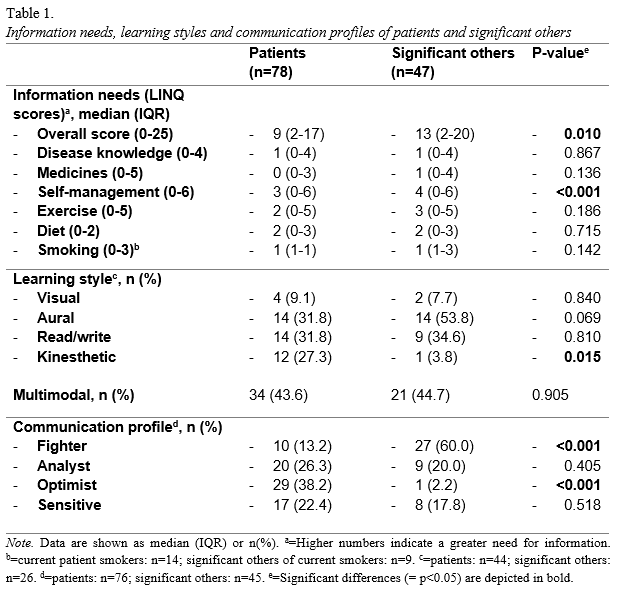Abstract
Introduction. The optimal design of patient education as part of pulmonary rehabilitation (PR) remains unknown. This study aims to identify information needs, learning styles and communication profiles of patients with COPD and asthma referred for PR and their significant others.
Methods. Information needs were assessed by the Lung Information Needs Questionnaire (LINQ). Learning styles were assessed with a multiple-choice question (visual, aural, read/write and kinesthetic - multiple choices were possible). Communication profiles were assessed by an instrument distinguishing four profiles: fighter, analyst, optimist and sensitive.
Results. Seventy-eight patients (56% female; age: 64±10 years; 82% patients with COPD) and 47 significant others (53% female; age: 60±13 years) were included. A variety of information needs were identified. Most preferred learning styles were aural (32%) and read/write (32%) in patients and aural (54%) in significant others. 44% of patients and 45% of significant others preferred more than one learning style. Most prevalent communication profiles were optimist in patients (38%) and fighter in significant others (60%)(table 1). Data collection is still ongoing.

Discussion. The identified variety of educational needs among patients and their significant others underline the need to offer tailored education in PR.